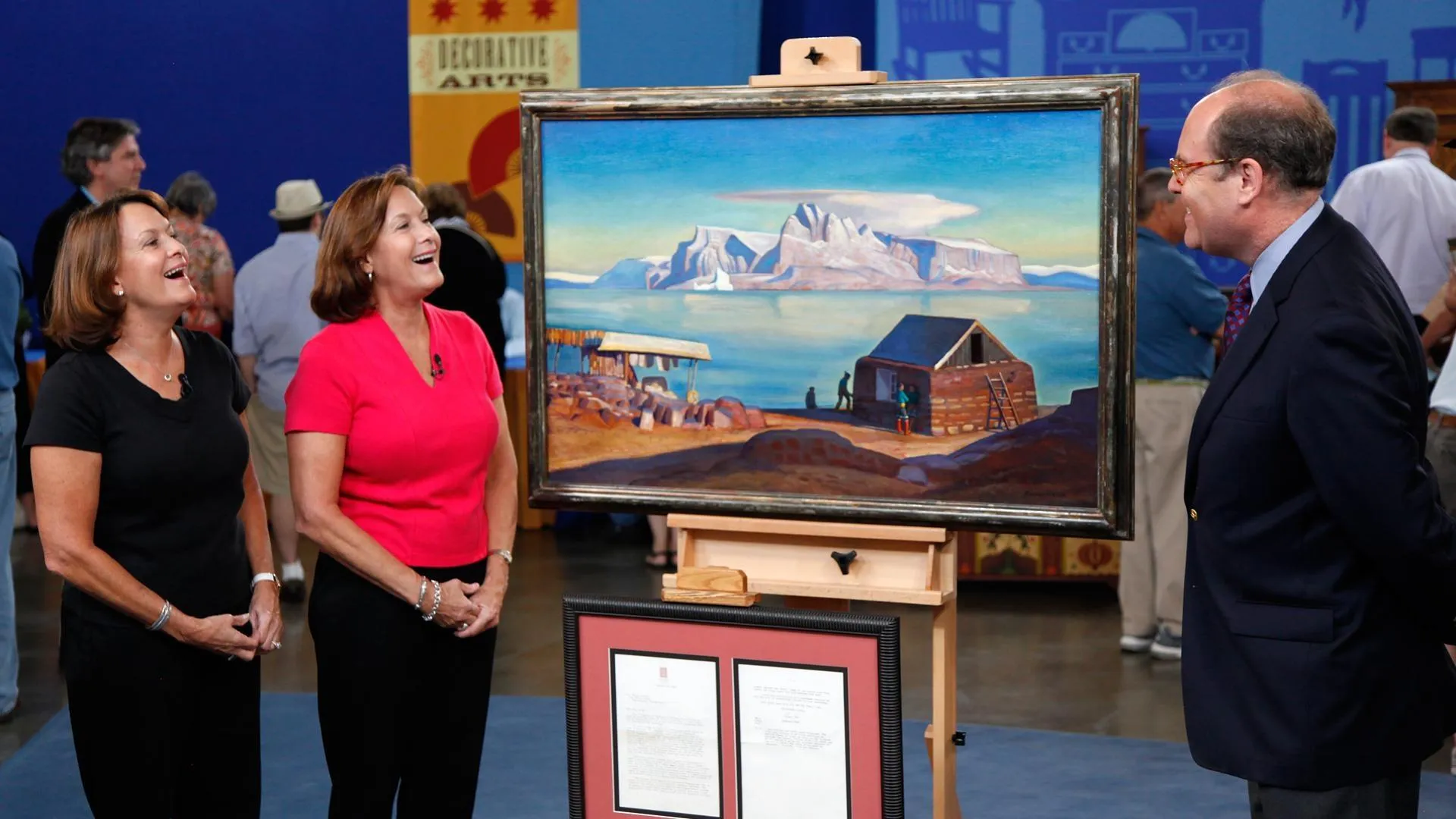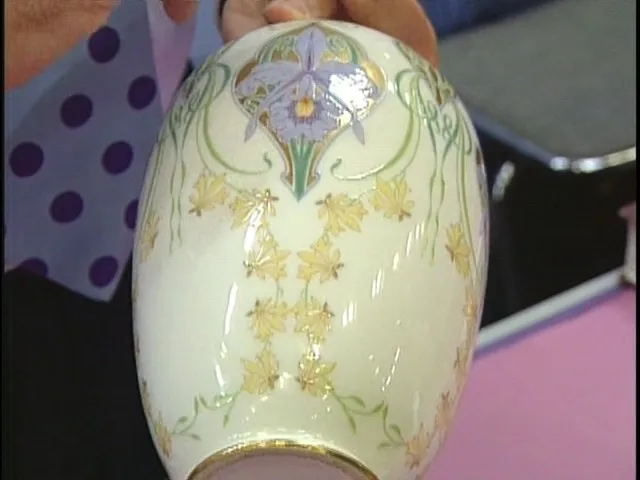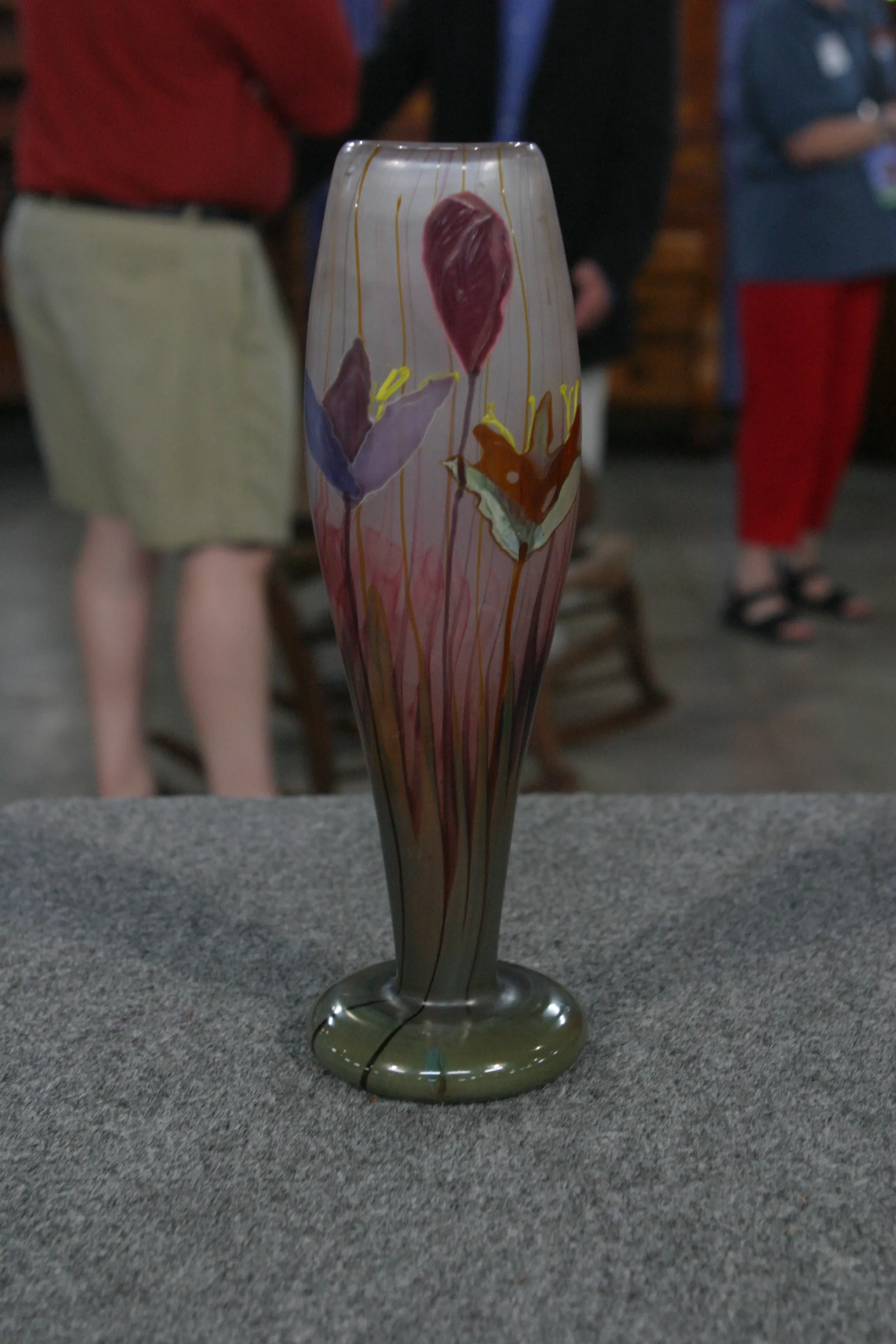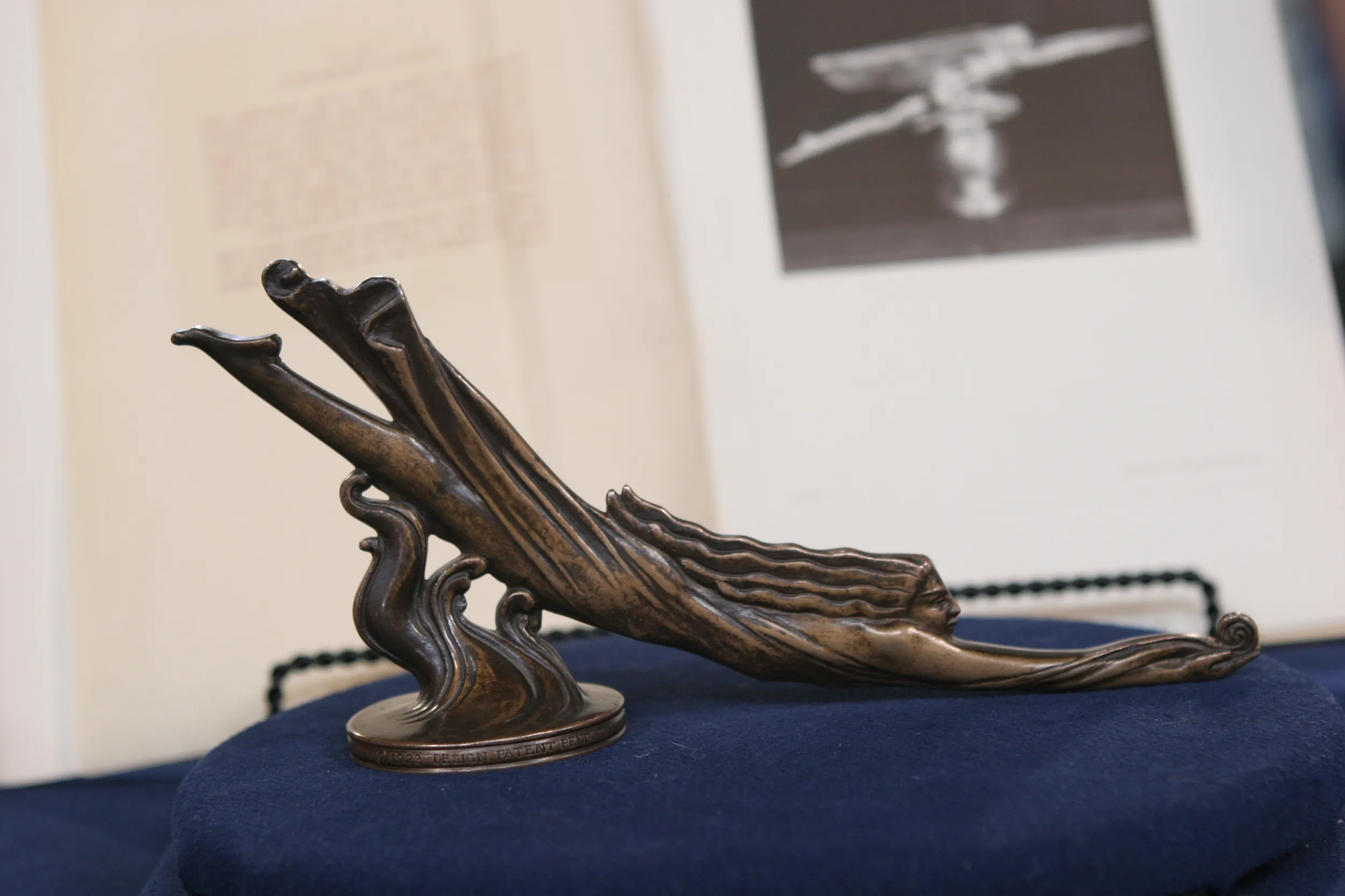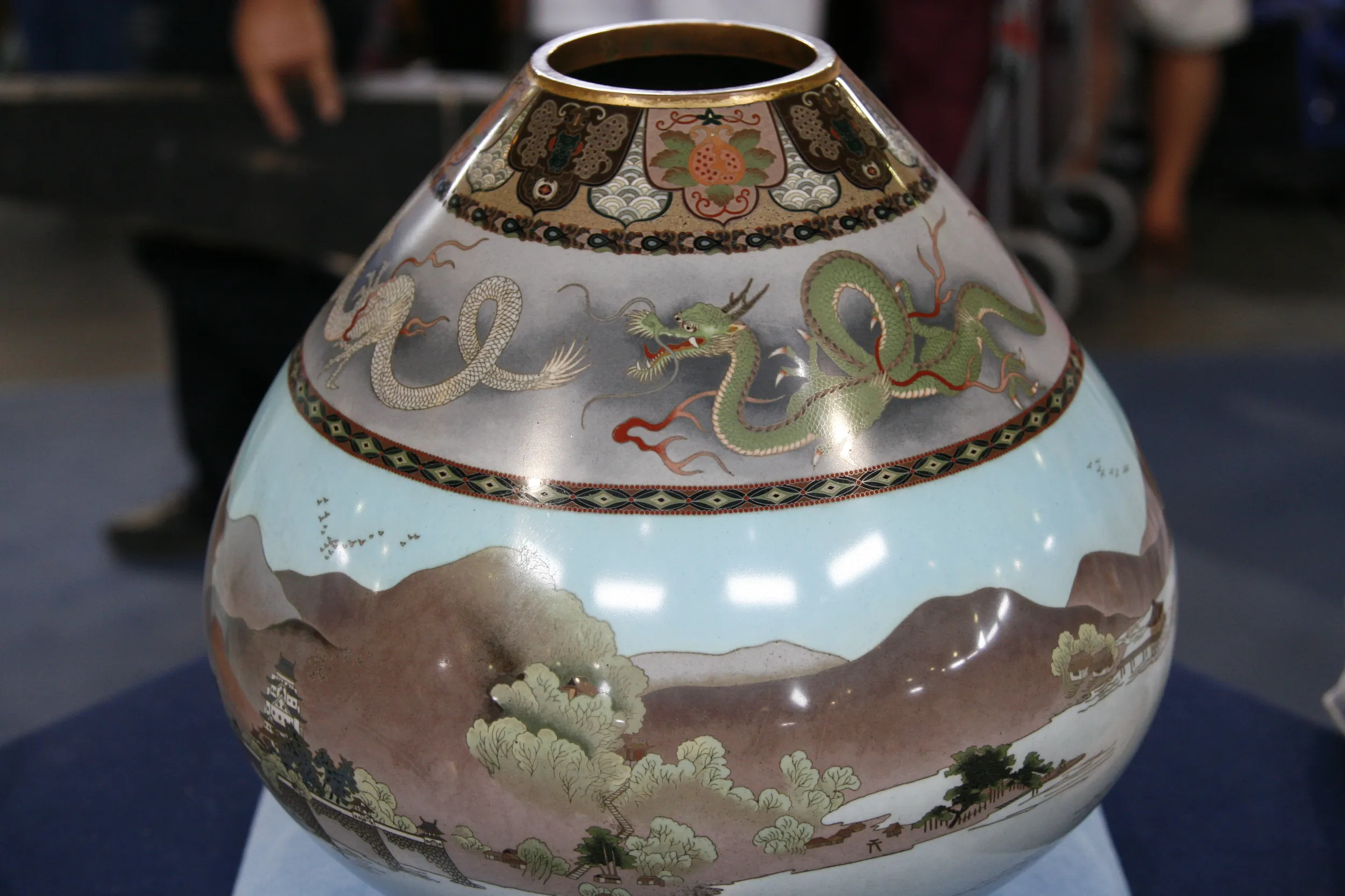GUEST: It was given to my boyfriend's stepfather. His first wife was a housekeeper for the Mellons, right here in Pittsburgh, on 5th Avenue, and it was given to her.
APPRAISER: And did she know anything about it at all when you acquired it?
GUEST: I don't think so, because I know at one point she had flowers in it.
APPRAISER: Uh-huh.
GUEST: Live ones.
APPRAISER: I can see the remains of some of those flowers up on the top of it.
(laughs)
APPRAISER: It could use a bath.
GUEST: Yes.
APPRAISER: And you did get it appraised, I understand.
GUEST: Recently.
APPRAISER: And what did the appraiser tell you?
GUEST: $650.
APPRAISER: I bet he didn't tell you what it was.
GUEST: And it was Japanese pottery.
APPRAISER: Well, you brought us something here that's on the cutting edge of what's going on in the art field today. It's the aesthetic movement, which was in the late 19th century. And this has a combination of designs on it that are Chinese, Japanese and so forth. And this was made by a company called the Faience Manufacturing Company in Greenpoint, New York.
GUEST: Oh!
APPRAISER: And they started in business about 1880, and they wound up in 1892. However, a fellow by the name of Edward Lycett arrived there, I believe it's about 1884, and he came with his son Joseph-- Joseph actually came a little later. They were China decorators. And the major thing about
Faience Manufacturing Company is their decoration. And you can see they've got the chrysanthemums, or whatever these little flowers are, and butterflies, and all of this is typical of the aesthetic movement. And Mr. Lycett was known for doing this. The nice reticulated neck up here... it's just a beautiful piece. And down here, you have this vermiculite-- that's what they call that-- or earthworm design, and it was not poor folks' pottery.
GUEST: Right.
APPRAISER: It was generally marketed in the finer department stores. It's a nice large piece. It's got a few abrasions. Let me show you the mark, and it says "F," "M", "Co." And that's why they call it "FM Co."
GUEST: Okay.
APPRAISER: That was the sort of code word that they use in the trade for the Faience Manufacturing Company. So, in terms of the value of it, it's worth a little more than your man appraised it for. And it is certainly not Japanese. I would say that it has a value, just outright, of about $1,500, which could go up to, in the right hands, $2,500.
GUEST: Oh, Evvy and Gene are going to be happy.
APPRAISER: So, that's what's happening to Faience Manufacturing Company. The value is going up.
GUEST: Great.
APPRAISER: Thanks for bringing it in.
GUEST: Thank you.
